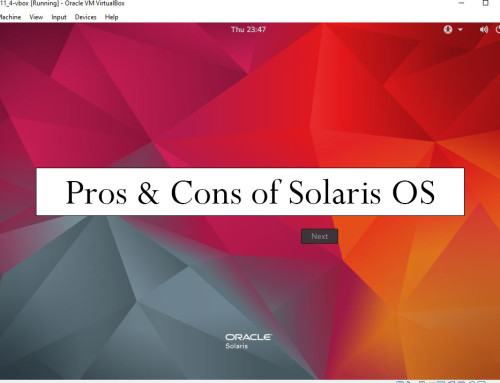Definition of laptop
A laptop or notebook is a portable computer with a screen and alphanumeric keyboard. The laptop is most suitable for a traveller.
There are two main computers used by a person in homes, offices, or any other place. One is a desktop computer and the other is a laptop. Desktop computers are placed on our desk or table. We cannot move desktop computers on daily basis. They stay at the same location all day. But a laptop is a portable computer that can be moved to different locations. We keep the laptop in a bag and carry it to any location we go.

Laptop computers or notebooks are mostly used by students, employees, or a person who travel on daily basis. You can perform normal computer tasks on a laptop but for doing more complex work the laptop is not a good choice. For example, if you are a graphic designer then doing animation and graphical work is difficult on the laptop. Laptop computers have compact devices embedded in them. The same processor used in desktops and laptops behaves differently. The processor on a desktop computer is faster than a notebook.
Let me discuss some pros and cons of using a laptop.
Advantages of laptop
Some benefits of the laptop are:-
Portable:
You can carry your laptop and move to any location. Laptops are easy to carry and are lightweight. If you are a student then you can keep your laptop with you when going to college. You can even carry a laptop while driving a motorbike.
Battery backup:
If you are living in a village then you may often face electricity problems. In that case, the laptop gives your extra backup. You can do normal computer activities in your notebook. You can even video call with your friends while sitting in your garden. In underdeveloped countries, there is the problem of electric load shedding. If you have some important work to do like meeting online with your boss then a notebook plays an important role.
No extra cables:
As you know the desktop computer has many cables attached to it. On a desktop PC, you have a mouse cable, keyboard cable, monitor cable, webcam cable, and USB Wi-Fi cable. These cables make our work difficult and these cables take extra space on our computer table. While laptops don’t have such cables. Working on a notebook (Laptop) is easy and the notebook takes less space.
Presentation:
A notebook helps you in doing a presentation. You have not seen any presentation that is carried out by desktop computer. The reason behind it is that a desktop PC is not a portable device. It is easy to make a presentation in your notebook and then attach a projector to it and present it to the audience.
Wi-Fi and Bluetooth:
Every notebook comes with Wi-Fi and Bluetooth facility. You can connect to the internet via Wi-Fi. If you are in a university, office, store, bus station, or on a railway station then you have Wi-Fi access. You can also share data with another mobile device via Bluetooth. You can pair up laptop and mobile and exchange data with Bluetooth.
Increase knowledge:
Students use the laptop for increasing their knowledge. They can do research work on a notebook. There are millions of websites available on the internet by which students can learn. Students can also read eBooks and offline documentation of any subject if they are not connected to the internet. They can consume their time by doing online and offline learning.
Taking notes and doing assignments:
By using laptops, students can take notes of lectures in the class. They can also do assignments on the laptop. Students can do research work and get online study materials easily while sitting in a classroom.
Power consumption:
A laptop uses less electricity as compared to a desktop computer. A laptop consumes 20 watts/hour to 100 watts/hour while a desktop computer consumes 200 watts/hour. A desktop computer is a bulky device and its CPU and monitor uses more electricity.
Lightweight:
The weight of a laptop or notebook ranges from 1kg to 3kg. While desktop computer weighs more than 5 kg. The hardware devices like hard drive, motherboard, and screen are compact in laptops. You can place the laptop on your legs also while sitting on a chair. Most users also use a laptop while sleeping in their beds.
Better communication:
You can send an email, chat with colleagues, video conference, write a document or play video games easily on the laptop. You have better communication with other people while using a notebook. You can still use a laptop while sitting on a train, car, aeroplane etc.
High security:
You keep a laptop near to you in most situations and that means no other person can access your laptop. But in the case of a desktop computer, you have a security problem. If you are away from home then anyone can get access to your desktop computer and your privacy become open.
Disadvantages of laptop
Some drawbacks of the laptop are:-
Wastage of time for students:
Student wastes their time by playing games in their notebook. Also, their brain becomes unused because most brain consuming tasks are done by the notebook. For example, for every calculation students prefer to use notebooks. They become lazy and spent their precious time getting unnecessary content.
Cost:
Laptops have a much higher price if you compare with desktops. If you buy a desktop computer and laptop at the same price then the performance of the desktop computer is better than that of a laptop. The processing speed of the laptop is also slower than a desktop computer. The maintenance cost of the laptop is also higher.
Slow Processor:
The processor in the notebook heats up quickly and its processing speed becomes slow. In a desktop computer, the processor has a big fan by which it cools down quickly and thus the performance of that processor is good. The processor of the laptop is unable to do heavy computation.
Screen size:
The screen size of the laptop ranges from 13 inches to 17 inches. That screen size is small because if you have more windows open on your laptop then it becomes different to manage those windows. You may need to attach an extra screen for working fast. Desktop computers have large monitor screens and you feel more comfortable using a desktop computer.
Health problem:
You become tired while using the laptop for a longer period. You may feel neck pain, eye strain and back pain. It is also noted that if you place the laptop on your legs or tummy then it will increase your body temperature to 2 Celsius.
Upgrade problem:
The laptop is difficult to upgrade. If you update your operating system then most laptop parts need to be upgraded also. You may need more RAM, processor speed, more storage and a better graphics card. You can replace RAM and hard drive but replacing graphics cards becomes difficult. If your webcam of the laptop becomes faulty then it becomes difficult to repair. Similarly, the touchpad, keyboard, motherboard and battery are difficult to repair. The original laptop parts have more life than new replaced or repaired parts.
Prone to damage:
The laptop is a sensitive computer and becomes damaged quickly. If your laptop fell from your hand then it breaks quickly. The keyboard of the laptop is also sensitive. You cannot play games on the laptop as you used to play on the desktop. The keys on the laptop are soft and prone to damage if you press them hard.
Small life:
Laptops have lesser life than desktop computers. The battery life of the laptop is 1 or 2 years. The replaceable battery has low life than the original battery. The laptop becomes outdated quickly. But desktop computers have more life as it is easy to upgrade desktop computers.
Stolen chance:
You keep your laptop with you when going outside the home. So, there are chances that your laptop can be stolen. It is also easy to carry a laptop which means it is also easy to steal a laptop when you are outside your home or office.
Examples of laptop
Some examples of laptops are:-
- Apple MacBook Pro
- Dell XPS 13
- Apple MacBook Air
- Acer Swift 3
- Asus Zenbook 13
- Acer Chromebook Spin 713
- Microsoft Surface Laptop Studio
- Asus ROG Zephyrus G15
- Dell XPS 15 OLED
- Samsung Galaxy Book Flex 15




